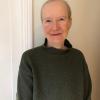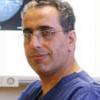The number of women diagnosed with breast cancer continues to rise year on year, with one in eight women now likely to develop the cancer during their lifetime according to figures released by Cancer Research UK.
The latest figures show that a total of 47,700 women were diagnosed in 2008, 5,000 more compared to a decade earlier, showing a rise of 3.5 per cent. Women aged between 50 and 69 have seen the biggest rise in cases with rates up 6 per cent. These findings confirm that breast cancer is by far the most common form of cancer in women, accounting for almost a third of all cases.
Lifestyle factors and habits are contributing towards the number of increased cases. Typically British women are drinking more, have a greater chance of being obese and are exercising much less frequently. A higher proportion of women are also having babies later in life due to career commitments, and all of these factors together can increase the risk of breast cancer.
It is important however to note that the treatment for breast cancer has improved dramatically over recent years and that survival rates have improved alongside this. In 1989 there were 15,625 deaths attributable to breast cancer but this figure had fallen to 11,990 in 2007, despite the increased number of affected patients. Three quarters of women with breast cancer survive for at least 10 years after being diagnosed with two out of three women surviving 20 years. The earlier cancer is treated the better the outlook for the patient.
Mr Simon Marsh, Consultant Breast Surgeon at The London Breast Clinic at 108 Harley Street is keen to ensure that the positive message in these figures is not lost and states:
The latest figures from Cancer Research UK confirm what we have known for a number of years. It is still very important for women to report anything that they are worried about to their doctor and we may also want to look at the NHS Screening Programme starting at an earlier age and for the current interval of three years between screens to be reduced. However the important news that must not be overlooked is that more women diagnosed with breast cancer are surviving.
Professor Kefah Mokbel, Consultant Breast Surgeon at the London Breast Institute at the Princess Grace Hospital in West London states that these figures are consistent with their findings:
“The latest figures from Cancer Research UK are consistent with our own findings. The figures highlight two main areas of concern; firstly that regular screening is required early and where possible it is recommended from the age of 40 ideally. Secondly that it is important to consider lifestyle configurations including reducing your alcohol consumption, optimising your body weight, taking regular exercise, reducing your intake of animal fat and increasing your intake of fresh fruit and vegetables.”
For more information from Professor Mokbel regarding the risks of breast cancer can be found in the following article: Are you at the Risk of Getting Breast Cancer.
For more information on breast cancer view our Breast Cancer Fact Sheet.








